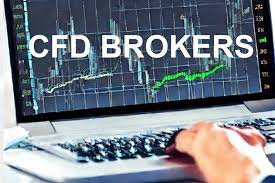
Navigating CFD Markets: Your Guide to Brokerage Services
CFD, or Contract for Difference, trading is an excellent way to gain exposure to a variety of assets while simultaneously minimizing risk. However, finding the right brokerage service that meets your needs can be daunting, especially if you’re new to the game. In this blog, we’ll cover the key factors you should consider when selecting a CFD Broker IFX service that will help you navigate the market with confidence, and ultimately find success in this exciting field.
The first thing you should consider is your trading strategy. Every brokerage service caters to different styles of traders, from day traders to long-term investors, so it’s essential to find a broker that aligns with your goals. If you’re a high-frequency trader, for example, look for a broker that offers tight spreads and lightning-fast execution times. On the other hand, if you’re more of a long-term thinker, prioritize brokers that can help you build a diverse portfolio while minimizing risk.
Another important factor to consider is the range of assets you can trade. CFDs provide access to an extensive range of assets, including stocks, commodities, and currencies, so ensure you study the available assets before choosing a broker. When looking at asset availability, consider the level of liquidity each asset attracts — trading in more liquid assets ensures more stable prices and typically means smaller bid-ask spreads.
The third factor to consider is fees. Every broker charges fees, including spreads, fees for holding positions overnight, and commissions. While fees are an essential component of brokerage services, it’s equally essential to balance fees against the quality of service. Look for a broker that provides a range of attractive services while still charging reasonable fees. Fees should be transparent and communicated with honesty and accuracy upfront.
Transparency and regulation are also critical factors to consider when selecting a CFD broker. A regulated broker will adhere to strict guidelines set by its regulatory body, ensuring the protection of your funds. Furthermore, regulatory authorities monitor CFD brokers to ensure fair dealings and practice. Being aware of the regulatory body in charge, checking if the broker is regulated by them, reading reviews and doing research, and ensuring the broker is transparent is important.
Conclusion:
In summary, navigating CFD markets can be challenging, but with the right brokerage service, you can enter the markets confidently and efficiently. Remember to consider your trading strategy, the range of assets available, fees, and regulatory stability. Finding a broker that meets your individual needs ultimately helps to optimize your success. Take the time to research different brokerage services, and don’t be afraid to ask questions. By considering the factors above, you’ll be well on your way to finding the best CFD brokerage service to suit your needs.